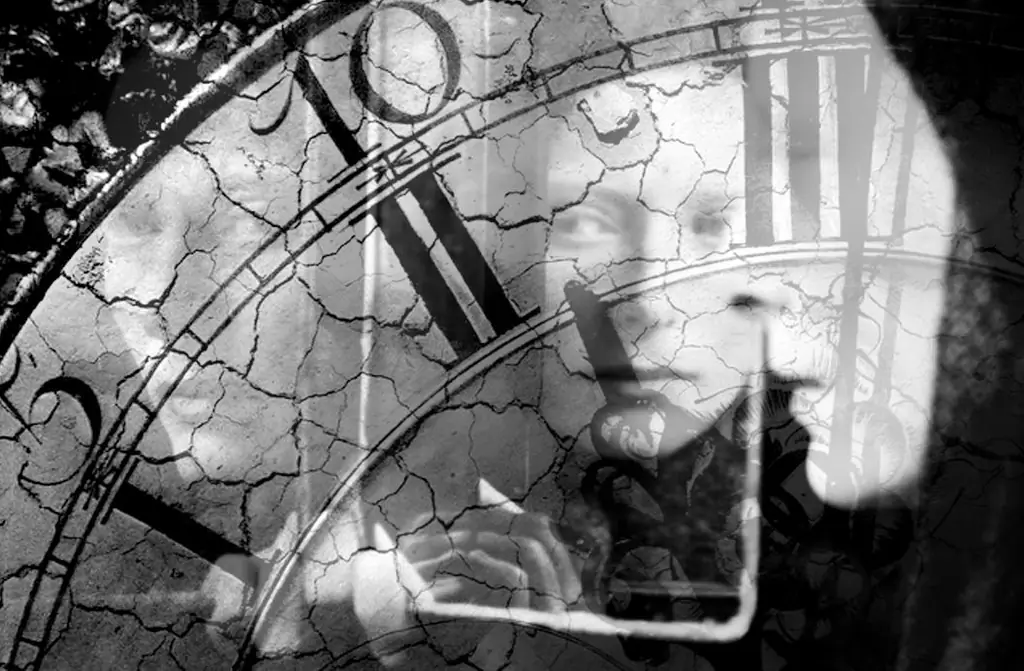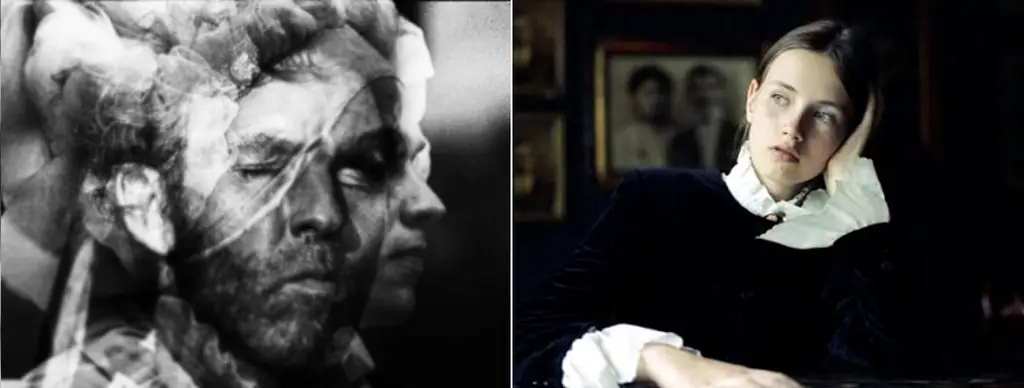- Author Adrian Jeff jeff@psychologosportal.com.
- Public 2023-12-17 05:06.
- Last modified 2025-01-24 14:09.

Alexander Griboyedov. Mind and heart are out of tune. Part 7.25 fools for one sane
Too much was new in it: the behavior of the characters, their unusual language, but most importantly, it contained the characters of recognizable people from society. Alexander's Moscow friends, who had managed to get acquainted with the drafts of the comedy, recognized those from whom the roles of Famusov, Skalozub, Molchalin and others were written off by their remarks …
Part 1. Family
Part 2. Cornet of a non-shiny regiment
Part 3. College of Foreign Affairs
Part 4. Music and diplomacy
Part 5. Secretary of the traveling mission
Part 6. To Moscow, to Moscow
Having stayed in Moscow, Griboyedov tried to stay at home less. He felt bad there. Nastasya Fyodorovna reminded her son of the need to return to the service of General Yermolov. Alexander was not going to return to the Caucasus and asked Nesselrode to extend his vacation for an indefinite period of time, without saving his salary. Permission was obtained, which could not but anger the mother.
In order not to hear her reproaches anymore, Alexander took advantage of Stepan Begichev's invitation and drove off to his Tula estate. Griboyedov was again left without any means of subsistence, and "Woe to the mind" still required significant revision and there was no guarantee that the play would be published and accepted by theaters for staging.
Too much was new in it: the behavior of the characters, their unusual language, but most importantly, it contained the characters of recognizable people from society. Alexander's Moscow friends, who had managed to get acquainted with the drafts of the comedy, recognized those from whom the roles of Famusov, Skalozub, Molchalin and others were written off.
In the summer of 1823, the comedy "Woe from Wit" was born near Tula, and somewhere in the south, either in Chisinau or Odessa, Pushkin wrote the first chapter of his novel in verse "Eugene Onegin".
Woe from Wit
Having squeezed out of Moscow everything that his play needed, he realized that the time had come to pave its way for the audience and readers. In the hope of an official recognition of his brainchild, Griboyedov went to Petersburg.
Here he met the husband of his cousin Elizabeth, General Paskevich, who would soon be appointed Commander-in-Chief in Transcaucasia instead of General Yermolov.
Among entertainments and feasts, Alexander did not forget about the main purpose of his visit to St. Petersburg. A distant relative of the Griboyedovs, Vasily Lanskoy, was appointed Minister of the Interior and censorship depended on him. Lanskoy encouraged Alexander about the publication of the comedy "Woe from Wit". All that remained was to prepare the manuscript and submit it to the censorship committee.

No urine sickening
Griboyedov, always neat in business, this time could not put in order the manuscript. Andrey Zhandr, a child's friend of Alexander, came to the rescue. He persuaded to give him a pile of crumpled crossed-out pieces of the play, promising to return them soon.
The military counting expedition (office) of Gendre undertook to disassemble the sheets with the text and rewrite them. A few days later, Alexander Sergeevich received a finished, neatly bound copy of his play. Only one thing Griboyedov did not know was that his Woe from Wit, copied many times by the Gendraites, had already gone for a walk around Petersburg from house to house, from salon to salon. The author himself read his work twelve - fifteen times a month wherever he was asked to do so.
But the more he realized that he had created an outstanding work, the more he was irritated by the praise and ovation after each reading. Now he firmly knew that the audience was laughing at the sharp remarks and caricatured characters of provincial Moscow, but remained deaf and indifferent to the essence of the play itself. “How… to tell people that their penniless approvals, the insignificant glory in their circle cannot comfort me?” Griboyedov complained.
Having signed out, having emasculated the sound, Alexander slipped into depression. The period of sound sublimation has passed, what was done did not please the playwright anymore, and a deep sound void formed inside. On the one hand, the feeling of one's own genius grew, familiar to every person with a sound vector, on the other, the abyss of self-dissatisfaction increased. He began to hate the play: "The weather is cloudy, damp, cold, I'm angry at everyone, everyone is stupid … No urine sick."
Alexander was in the worst frame of mind. The money ran out, the luxurious Persian order had long been laid in the pawnshop, there was no strength to resist the stupidity of the censors.
The trouble is that you are Thaddeus Bulgarin
The journalist Faddey Bulgarin's Literary Leaflets published his feuilleton, in which, under the name of the writer Talantin, Griboyedov was guessed, “opposed to all mediocre Petersburg writers,” teaching them how to write. Thaddeus Bulgarin was known for his obsessive servility, skinny unscrupulousness, custom-made praises, which were generously paid by booksellers and the authors themselves.
To attract writers to his house, he settled a certain person, a German girl Laenchen (Lenochka), and without hesitation encouraged male writers' claims to her. System-vector psychology of Yuri Burlan explains this behavior by the properties of a stressful skin vector. For the sake of greater benefit, the skinner is able to sacrifice what he has.
Of course, no one would have believed that Alexander Griboyedov ordered Bulgarin a feuilleton to raise his own popularity and prestige. “Woe from Wit” has not yet been published, and the vaudeville “Who is a brother, who is a sister,” successfully running in Moscow, was not accepted in St. Petersburg.
In such conditions, the Bulgarin boasting to the author looked more like a mockery than friendly support. The journalist's intrusive apologies pissed off Alexander.
For the first time in his life, he abandoned the society of friends and Petersburg relatives, wishing to be alone with the music and "Gore", which no one wanted to publish or stage.
At times, the sound engineer "denies himself" from the whole world and plunges into saving loneliness. Griboyedov moved into a small apartment on the first floor at the very mouth of the Neva. I didn’t receive anyone, “I locked myself up and played the piano for days. Friends were worried about him. After one visit to the head of the censorship committee, von Fock, Griboyedov returned home in a deranged state and, in a fit of rage, tore into shreds all the papers that came to his hand "(Ekaterina Tsimbaeva." Griboyedov ")

All hopes for the legalization of the play, which circulated around St. Petersburg in manuscripts, collapsed. Alexander suffered severe disappointment, which could not but affect his physical and mental state.
Here Bulgarin arose again. To regain Griboyedov's disposition, he vowed to "push" through the censorship, if not the entire comedy "Woe from Wit," then at least its individual scenes. Alexander Sergeevich agreed.
Experienced Bulgarin knew many workarounds, knew how to wait until the right moment, knew who should once again bow down and who should be bribed. Alexander, brought up in the rigid framework of the upper class, with all his skill as a diplomat, avoided such actions and actions that were not worthy of a nobleman.
Ban on publication
By necessity, Griboyedov moved to his friend and cousin, the future Decembrist Alexander Odoevsky. A week later Bulgarin appeared in Odoevsky's house with permission from the censorship to publish Woe from Wit.
The entire first act of the comedy was published in the Bulgarin anthology "Russian Thalia". The cunning Bulgarin, having twisted like a skin, got a new author with a scandalous play in his magazine, which guaranteed the sale of the published edition.
The office of the enterprising Andrei Gendre has greatly enriched itself by rewriting, binding and distributing the manuscript of the comedy. Careless scribes made mistakes in the text, or even changed it beyond recognition. The more expensive the original became. Soon there was not a single personal library left in Russia where a handwritten copy of Grief was not on the shelf among the classics.
Nobody had time to look back, as the nonexistent work became a classic of Russian literature and spread across Russia in an amount of about 40 thousand. The usual circulation of books at that time was from 1200 to 2400 copies and only Pushkin's books reached 5000.
"His handwritten comedy Woe from Wit," Pushkin recalled, "produced an indescribable effect and suddenly put him alongside our first poets."
If St. Petersburg greeted Griboyedov's comedy with enthusiasm, Moscow perceived it as a lampoon on famous Moscow people, finding their similarities with the characters of the characters in Woe from Wit.
The offended famusovs, puffers, taciturns, chatskys recognized themselves in the pages of the comedy and reacted sharply and indignantly, even persuading those who were younger to challenge Alexander Sergeevich to a duel. Griboyedov's plan was a success, he managed to "rock" the swamp of Russian reality.
Moscow has raised violent agitation against the author. There were reports to St. Petersburg that "Woe from Wit" destroys the foundations of Russian society. The censors were quick to ban the publication and the forthcoming production of the comedy.
Where is the corner of the weary heart?
Three years have passed since Griboyedov's departure from the Caucasus. During this time, he finished a comedy, gained popularity as a fashion author, found out what was happening in the capitals. Secret societies have long ceased to be secret, and only the lazy did not know about them. The decrepit tsar was happily living out his life and no longer dreamed of new victories.
After the Persian intellectual desert, Alexander was satiated with fellowship with friends, girlfriends, writers and relatives. Wandering in other people's apartments, lack of money, censorship, creative crisis and uncertainty with the service to which he had to return, since he had no other means of subsistence. All this led Griboyedov to severe mood swings.

“Another game of fate is intolerable, all my life I wish to find somewhere a corner for solitude, and there is none for me anywhere” (From a letter to Begichev on September 9, 1825). The main thing for a sound engineer is to concentrate on sound thought; such a state can be achieved only in silence and solitude, but no one can provide them to him.
Stepan Begichev once again loaned money to a friend so that he could return to Ermolov. On September 12, he arrived in Feodosia to sail to the Caucasus. The mood was heavy. Alexander was oppressed by official and everyday uncertainty, the dangerous situation of close friends with their membership in secret unions.
In Crimea, a severe depression swept over him, he could not find a place for himself and was close to suicide. " He wrote to Stepan Begichev: “Unknown anguish! Stepan, give me some advice on how to save myself from madness or a pistol, but I feel that this or that is ahead of me."
Unfilled voids The sound vector creates such a psychological state when life ceases to make sense. “Experiencing extreme suffering, the sound engineer comes to suicide,” says Yuri Burlan at a lecture on system-vector psychology.
Griboyedov's sound shortage was filled during the work on the comedy Woe from Wit. Its popularity and the speed with which copies of the play's manuscript were distributed throughout Russia temporarily patched up the sound holes of the Russian collective psyche. Now Griboyedov needed a new creative sublimation, he sought and did not find it. The constant reminder of the past success of Woe from Wit by the author irritated and unnerved.
You can learn more about the properties of the sound vector and about the unique abstract intelligence that it awards its owner at the training on System-Vector Psychology by Yuri Burlan. Registration for free online lectures at the link:
Read more …






